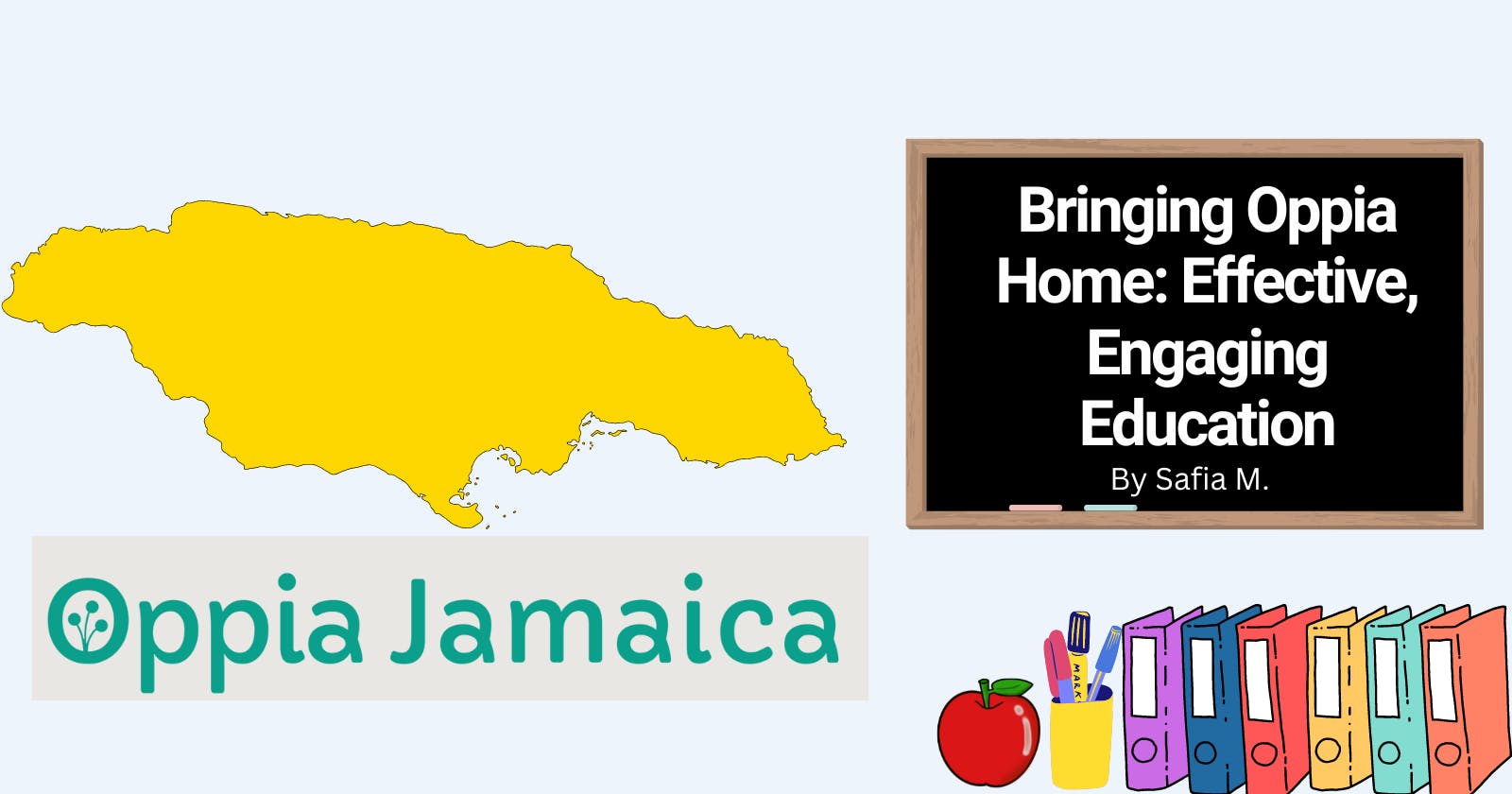Growing up in Jamaica, I witnessed firsthand the challenges faced by many children in accessing a quality education. Limited resources and opportunities for underserved communities often hindered their ability to reach their full potential. As a developer with a passion for leveraging technology for social good, I want to consistently make a difference within my community. And for this reason, it was only natural for me to chose Oppia as my Outreachy Project.
What is Oppia?
Oppia is an Edutech platform founded by Sean Lip which is geared towards helping underserved students in 25+ countries receive a quality education. Oppia’s aim is to provide personalized tutoring to every single person in the world, especially those whose educational needs are not currently being served well. They do this through the simulation of a friendly, non-judgmental tutor.
Journey With Oppia
My journey with Oppia began with a task to make the most impact I could within my contribution period and so I devised a plan. Typically Oppia applicants are tasked with bringing Oppia to the classroom or a community but I wanted to hit a little more closer to home and so that is what I did. I brought Oppia to Jamaican households and this is how I did it:
Sharing Oppia excitement with my Devmates: The program I am apart of includes students from different parishes in Jamaica. Since I wanted to bring Oppia home but also make maximum impact, I needed to therefore reach out to Devmates who lived in other parishes and have them carry Oppia to their different communities. The idea behind this was that by bringing Oppia home, I would ultimately have the Oppia app grow in Jamaica from the inside out by having points of contacts in different parishes. Through this effort, I was able to bring Oppia to not only Kingston, where I reside, but also Montego Bay both of which are key cities in Jamaica. Currently I am looking to solidify a partnership in Clarendon.
Sharing Oppia with the communities that need it: Next I brought Oppia to a community that needed it. During school breaks I often volunteered or tutored students at the primary/high school level. As such this gave me direct access to a list of students and parents who I knew would appreciate the Oppia app. And so I ventured into low to low medium income communities in Kingston and had a small community session with the students there in order to get feedback on the app.
Here's what I learnt
Oppia as it is, is not just for children: While the primary age group for Oppia is currently 7-14, while testing the app with students and their parents, I realized that many of the parents were learning along with their children. Some of these parents were unable to receive a primary education or complete their secondary education due to various circumstances.
Oppia needs more hands on board: The great thing about having Devmates with siblings is that as they assist their sibling with the app they will also look for bugs or suggest ways to help the platform grow. This was a sort of double value that I knew would pay off in the end as I received many suggestions for features on how Oppia could improve. And so it is at this point in the article where I say, if you have any skill and you're interested in helping shape the future of education, then click the link to volunteer at Oppia. Reme mber you can make a big change with a small contribution whether that be of your time or money.
Oppia will be great: As Oppia continues to grow it has the potential to become a great educational tool within homes, classrooms and community. It plays a fundamental role in helping the UN to achieve it's goal of providing inclusive worldwide education.
Conclusion
My time with Oppia allowed me to watch as an application brought joy to underserved communities. I can't wait to contribute more!
